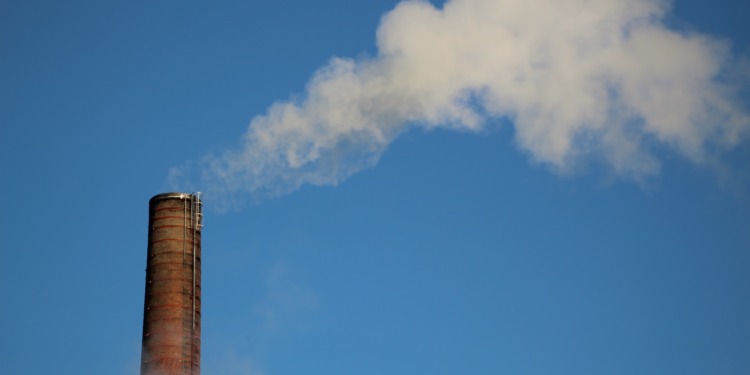There is always so much talk about carbon dioxide being the main culprit for climate change, but there are other culprits too, and dangerous ones, like methane. A powerful greenhouse gas, methane is the cause of roughly 30% of the rising global temperature since the Industrial Revolution, an earlier International Energy Agency (IEA) report found.
Cutting methane emissions is crucial according to the US Environmental Protection Agency (EMA), which writes that methane accounts for around 20% of all global emissions, and is “25 times as potent as carbon dioxide at trapping heat in the atmosphere.” (bolding added).
The International Energy Agency (IEA) recently released another report that breaks down just how harmful methane is for our health, in partnership with two other organisations: UNEP-convened Climate and Clean Air Coalition (CCAC), and the United Nations Environment Programme (UNEP).
The IEA advised the following in their report:
“Rapid cuts in methane emissions from fossil fuels through targeted abatement measures – alongside deep cuts in carbon dioxide (CO2) emissions – are essential to achieve global climate targets. Without targeted action on methane, even with deep reductions in fossil fuel use, the increase in the global average surface temperature will likely exceed 1.6 °C by 2050.”
Not only does methane increase global temperature dramatically, but the IEA’s report shows that more deaths are caused by methane than we realise.
In 2022, Under Secretary of Commerce for Oceans and Atmosphere & NOAA Administrator Rick Spinrad said that methane “causes roughly 500,000 premature deaths each year around the world.”
Alarmingly, this year’s IEA report nearly doubles this figure:
“Immediate, targeted methane abatement in the fossil fuel sector can prevent nearly 1 million premature deaths due to ozone exposure.”
Methane: Enemy of Planet and People
Methane emissions are a huge cause of the rise in global temperatures. An earlier report from the IEA noted the main causes and dangers of methane emissions.
Methane comes primarily from agriculture and the energy sector, which includes emissions from coal, oil, natural gas and biofuels. The previous IEA report also noted the potential dangers of methane, such as its ability to absorb more energy than CO2 while in the atmosphere, its adverse effect on air quality, and its potential to cause explosions.
The most recent IEA report, however, explicitly makes the link between methane emissions and thousands of deaths every year, as well as the financial benefits of slashing methane emissions.
Reducing the amount of methane in the atmosphere would prevent 90 million metric tons of crop losses, and 85 billion hours of labour lost to heat exposure, the report says. This would save around “USD 260 billion in direct economic benefits” by 2050.
With regards to food security, the IEA report adds, the crops saved would correspond to around 60% of the amount of wheat, rice, soy and maize that Africa produced in 2021.
The IEA explains,
“Methane is not only a potent greenhouse gas, but also a key precursor to ground level ozone pollution. Taking immediate action to reduce methane emissions would therefore deliver important health, food security and economic benefits, in addition to helping limit dangerous climate feedback loops.”
Related articles: Why Reducing Methane Emissions is Key to Solving the Climate Crisis
In other words, cutting methane emissions is not only wise with regard to our environment and health — it is also an economically savvy strategy.
Whatsmore, the report confirms that we already have the technology to reduce methane emissions — “75% of methane emissions from oil and gas operations and half of emissions from coal today can be abated with existing technology, often at low cost.”
In fact, in the fossil fuel sector alone, the IEA estimates that 80 Mt (metric tons) of annual methane emissions could be prevented by 2030 with present technologies. In fact, this may even be possible at “negative cost.”
Where Do We Go From Here?
The above video was released just over a year ago, yet this year’s IEA report shows the damaging impact methane continues to have on our planet and our bodies. To drive leaders to implement the technology we already have in order to cut methane emissions, several partnerships and not-for-profit organisations have begun to speak up.
The report states that the UNEP-Convened Climate and Clean Air Coalition (CCAC), a partnership of over 160 governments, intergovernmental organisations, and non-governmental organisations, is the only international body whose primary aim is to reduce short-lived climate pollutants (SLCPs), including methane.
Beyond the CCAC, there are also a number of non-profit founded petitions advocating for action to be taken to reduce methane emissions. In the US, a coalition of “14 environmental and community advocacy groups” is petitioning the US Environmental Protection Agency (EPA). These groups include the Environmental Defense Fund, Clean Air Task Force, Californians Against Waste, and Idaho Conservation League, among others.
“Given the climate crisis we are facing, and the potency of methane as a greenhouse gas, it is time for the EPA to step up and strengthen its requirements for controlling methane from municipal landfills,” said Leah Kelly, Senior Attorney for the Environmental Integrity Project.
The petition was taken to the EPA Headquarters in Washington D.C, and it asks for stronger regulations for controlling methane emissions from landfills, better control of gas collection systems at landfills, and an implementation of technology to record exact methane emissions.
For the EU, the Environmental Investigation Agency (EIA) has released a petition for citizens to sign, which demands that the EU “act to ensure that the EU regulatory framework on methane is in tune with EU climate ambitions, and support the European Parliament’s position on imports.”
World leading environmental organisations and non-profit establishments are demanding that we slash methane levels in the atmosphere to help the environment and the economy, and to save lives.
Editor’s Note: The opinions expressed here by the authors are their own, not those of Impakter.com — In the Featured Photo: Gas being released into the atmosphere. Featured Photo Credit: Anne Nygård.










